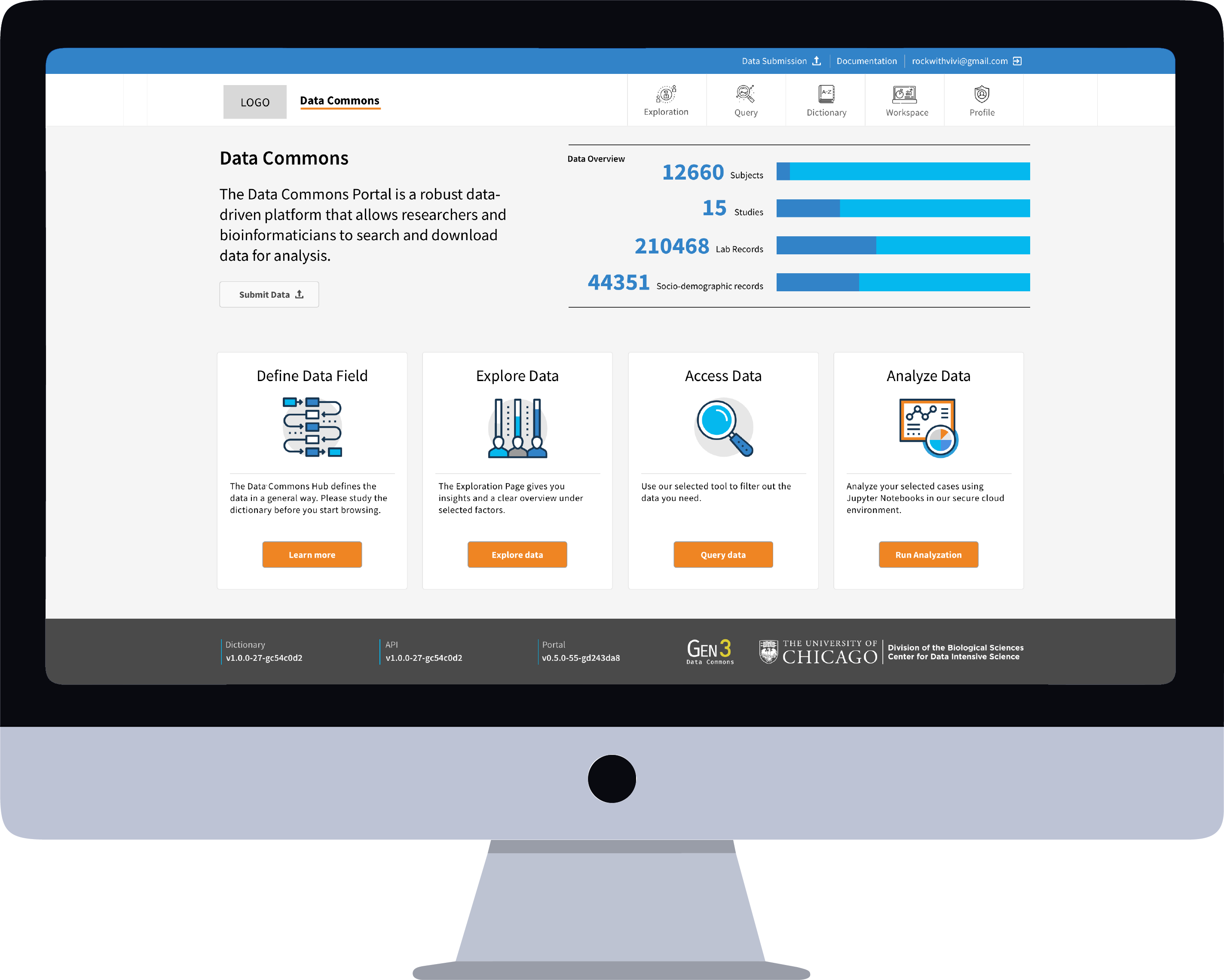The Gen3 platform consists of open-source software services that support the emergence of healthy data ecosystems by enabling the interoperation and creation of cloud-based data resources, including data commons and analysis workspaces. Gen3 aims to accelerate and democratize the process of scientific discovery by making it easy to manage, analyze, harmonize, and share large and complex datasets in the cloud.
Gen3 empowers you to host, manage, and share data with researchers, developers, and health organizations. The Gen3 platform supports ingestion of virtually any data format, including both large objects and clinical and phenotype metadata. With Gen3, you can receive and quality control data by a customizable data model and generate globally unique IDs for data objects.
Explore data on our Data Commons using built-in faceted search tools, send custom queries, create and export subject-level data cohorts, or collaboratively analyze the selected data in a secure cloud environment.
With Gen3, you can finely control user access to datasets via a flexible access control policy engine and compute over that data in secure analysis workspaces. Gen3 supports optional tiered access, enabling users to see only summary information for data they don't have access to.
We believe in open-source software drives better software development. Engage with our Gen3’s user community, develop new features, ask a question to our Support Team, or discuss with other scholars about similar technical or scientific questions during their experience with Gen3.
Each service exposes open Application Programing Interfaces (APIs) for data submission, indexing data objects, associating metadata with the data objects, sending custom query requests, or enabling programmatic data search and custom app development.
The Gen3 services are modular and data resources can choose which features to include. The Gen3 framework services expose powerful APIs that empower interoperation of a healthy data ecosystem and can provide the foundation for developing new tools for sharing and analyzing data across resources in the cloud.
Create unique pipelines or deep learning algorithms for your analyses using Gen3 workflow execution services and open APIs for accessing organized data with persistent digital identifiers.
Pipeline LibraryUse our smart dashboard to explore and find data from multiple sources to advance your research. Collaborate with others in your field to combine data for powerful, cross-project meta-analyses.
Gen3 User GuideIntegrate Gen3 open APIs into your services and applications, and leverage our open-source software libraries to development of custom apps.
Gen3 DeveloperGen3 has been used to build over 15 data commons by different organizations and is a key component of the emerging large-scale translational medicine data ecosystem. Currently, several NIH Institutes and Centers have projects utilizing Gen3, including NCI, NHLBI, the Common Fund, NHGRI, NIDDK, and NIDA. At least two public-private partnerships have also used the Gen3 platform to create data commons.
Powered by Gen3
- Amit, Cloud Solutions Architect with Leidos